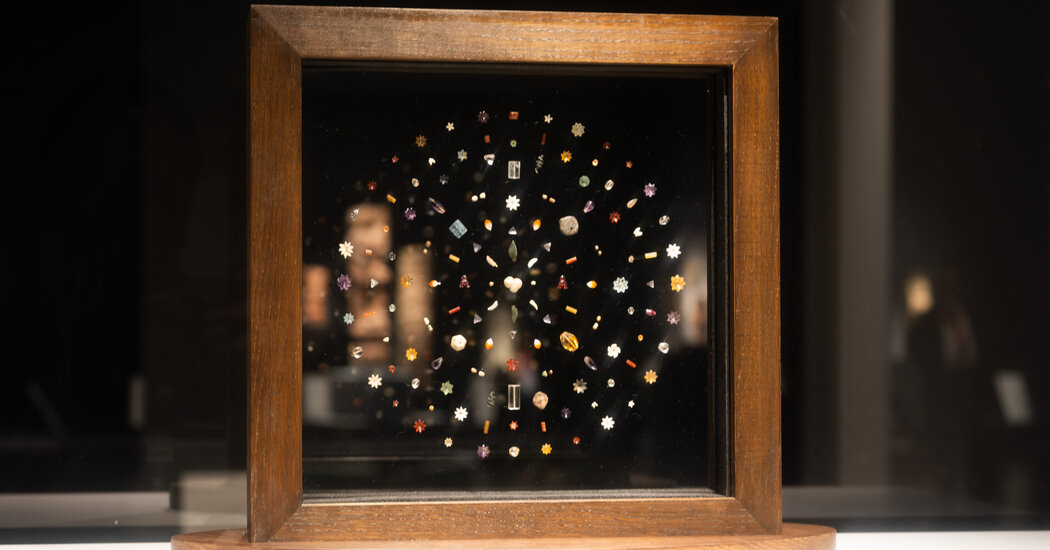The jewellery is delicate, with solely millimeters in size, organized in advanced patterns of circles and contours. Taken from occupied by British India in 1898, jewellery was found with BONE and ASH, which is alleged to be the stays of Buddha. The gathering is maybe one of the mild relics in modern faith.
It’s now being offered, igniting a authorized battle between the federal government of India and Sotbis, a global public sale home that can promote non secular public sale treasures. The artifacts are offered on behalf of the English descendants of the researcher who dug them greater than 120 years in the past.
On Monday, the Indian Ministry of Tradition Issued a legal orderSaying that the relics needs to be returned to India for “conservation and spiritual worship”.
The sale shortens the center of an uncomfortable query that has shocked after imperial nations: how ought to invaluable relics be processed, looted generations of as soon as occupied territories?
“We’re on this motion that has lengthy been overdue to rethink the standing of culturally important artistic endeavors,” says Ashley Thompson, a professor of artwork in Southeast Asia on the College of London. “To whom do they belong? What do they price? Can they even be thought-about items?”
Many international locations have been combating related points lately. Some US establishments slowly started to return relics to root tribesS Dutch museums have returned artifacts from colonial era on international locations like Nigeria and Sri Lanka. All around the UK museums have been steadily Repatriation of looted artifactsTogether with some associated to Buddhist funeral traditions.
However Buddha jewellery, on the market this week, often called Piprahwa Gems, have their very own distinctive problems. They don’t seem to be stored by a museum or nation, however extra just lately, the William Clatton Pepe household, the English explorer who excavated the Holy Funeral in 1898.
This discrepancy presents an moral puzzle, mentioned Narne Ahudzha, Professor of Artwork Historical past at Jawaharlal Nehru College in New Delhi, who research the administration and repatriation of the museum.
“By marking the ethics of the state of affairs and public sentiment, the British state did the proper factor and returned relics in 1952,” mentioned G -n -Ahuzha, citing different repatriated Buddhist objects that have been returned from England. “However the individuals who have taken a colonial place haven’t been held accountable.”
In response to an outline of the jewellery on the Sotby web site, G -H Pepe discovers the artifacts because it dug land in Pikov, a village in North India. Based by a sacred funeral often called the stupa, the gathering is discovered with bone and ash stays lengthy thought-about these of Buddha, which is believed to have been buried within the space.
At the moment, Pe Pepe betrayed a lot of its discover to the British state, donating different components of scientists and museums, together with the Indian Museum in Kolka. However he was allowed to maintain a number of the relics which have been handed down by generations in his household.
Chris Pepe, one of many three descendants who now personal the relics Before the BBC that the household has studied the donation of the gathering of varied Buddhist stakeholders, however this might result in unspecified issues. The public sale was “essentially the most righteous and clear approach to switch these relics to Buddhists,” mentioned Pepe.
Early Sotheby’s defended his providing to the personal assortment of the Peppé household. A consultant of the public sale dwelling declined to touch upon Tuesday after the Ministry of Tradition of India issued its order requesting that the sale be suspended, saying that the public sale was nonetheless scheduled for Wednesday.
Within the doc, Posted on InstagramThe Ministry of Tradition claims that Buddhist relics needs to be provided to the Indian authorities, not auctioned. The Pepppé household, in accordance with him, “lacks the authority to promote these things.”

